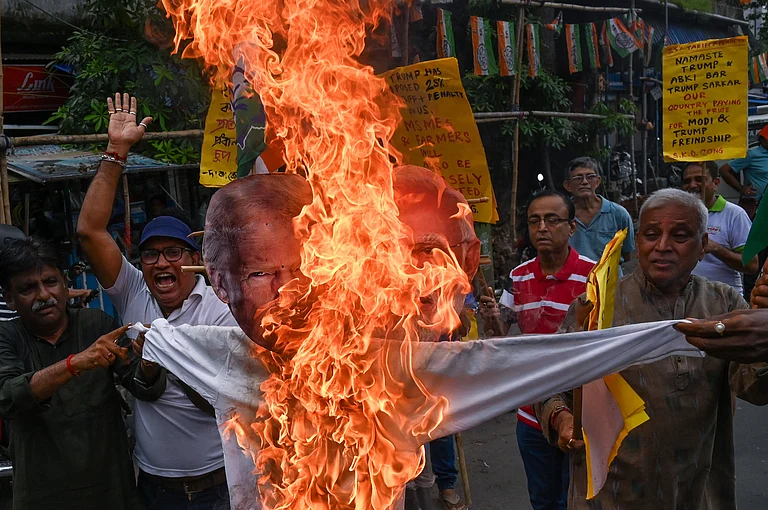A first glimpse appears through my childhood magnifying glass,
As sitting on a hard stone, near our own land.
I remember my parents weeping and consoling each other,
As the bulldozer pierced our own land, own home.
Those cruel people, on the bulldozer, had nothing of their own.
They were neither our well-wishers nor our enemies.
They came to finish their duty, and the same day,
We lost our own land and identity.
I remember, I stood up on the stone and
Started pelting stones at them, though I knew it’s useless.
I remember picking up all broken pieces of my magnifying glass,
On the same day, we lost our own land.
My parents were born farmers. My grandparents were born farmers.
And I, the son of a poor farmer.
And the same day, I remember watching my parents’ helpless pale faces,
Crippled at having lost all farmers can have in a lifetime.
Those cruel people had drawn a border line
between me and my land, my home.
Those political people defined a border line
between me and my weak, apolitical parents.
I remember people telling the final truth of our destiny;
We lost our own land, our own home and own self,
The same day, we lost our land.
(Kamal Kumar Tanti (b. 1982) is a well-known young voice in the contemporary world of Indian English Poetry as well as of Assamese Poetry. Kamal is a bilingual poet, critic, writer and translator; and writes both in Assamese and English languages. He is a nominated Member of Assamese Language Advisory Board of Sahitya Akademi (National Academy of Letters), New Delhi. He belongs to Adivasi Tea-garden Labourer Community of Assam. His first collection of Assamese poetry Marangburu Amar Pita (Our Father Marangburu), published in 2007, won him the prestigious Sahitya Akademi Yuva Puraskar in 2012, for Assamese language and Munin Barkotoki Literary Award in 2008. His second collection of Assamese poetry Uttar-Ouponibeshik Kabita (Postcolonial Poems) was published in July, 2018. His Assamese poems have been included in various anthologies and featured in various journals in Assamese. Postcolonial Poems presents the best of his Assamese poems in English translations selected from his two collections of Assamese poetry.)





















